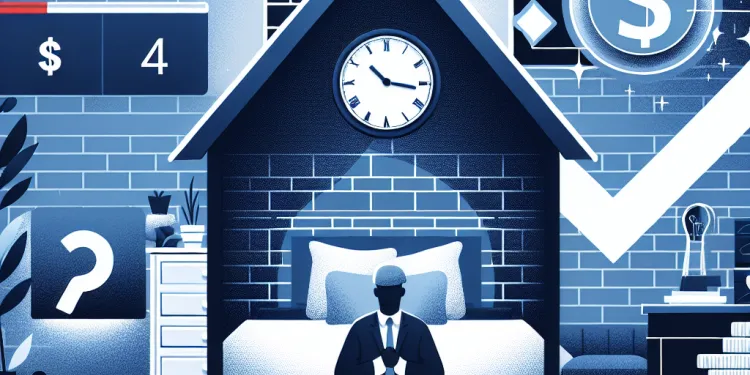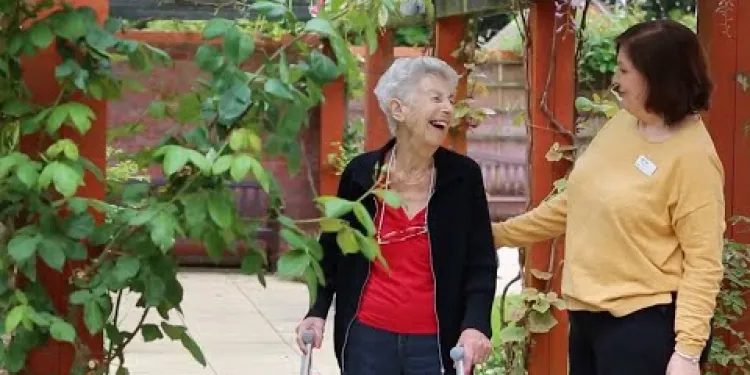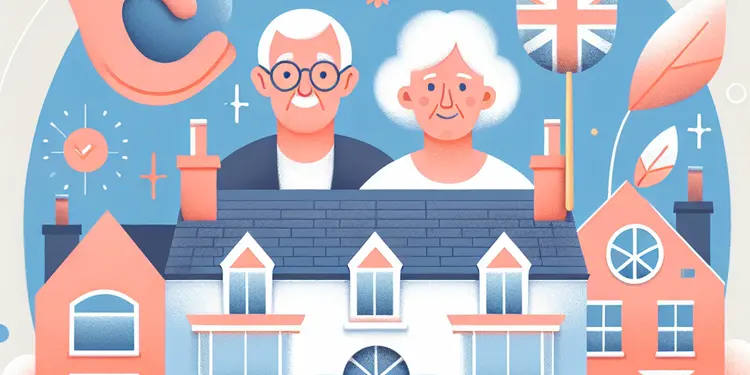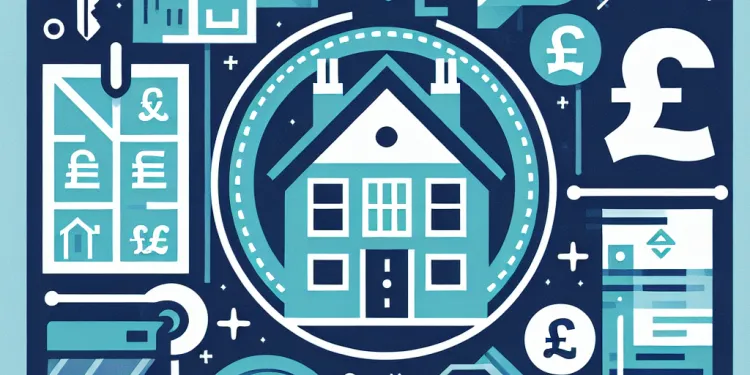
Find Help
More Items From Ergsy search
-

Addressing the Housing Crisis: Current Challenges and Solutions
Relevance: 100%
-

Impact of UK Housing Crisis on Local Communities
Relevance: 69%
-

Addressing the Rising Homelessness Crisis
Relevance: 44%
-

Addressing the Cost of Living Crisis: Community Support and Resources
Relevance: 43%
-

Navigating the UK Cost of Living Crisis: Tips for Families
Relevance: 43%
-

How do I find alternative housing quickly if evicted?
Relevance: 36%
-

Mental Health Impact of Cost of Living Crisis and Support Resources
Relevance: 36%
-

What alternative solutions are being discussed to combat rising rents?
Relevance: 36%
-

Impact of Housing Shortage on Local Communities
Relevance: 35%
-

Rise in Food Bank Usage Amid Economic Challenges
Relevance: 35%
-

What are the proposed Cuts to Housing Benefits Amid Rising Rents?
Relevance: 34%
-

UK's Elderly Population Faces Growing Loneliness Crisis
Relevance: 33%
-

House Prices Soar: First-Time Buyers Share Their Stories
Relevance: 33%
-

What role do housing associations have amid these cuts?
Relevance: 31%
-

UK House Prices Fall for Third Consecutive Month
Relevance: 31%
-

Is there a plan to offer additional support to offset housing benefit cuts?
Relevance: 31%
-

What is the relationship between rising rents and housing benefit cuts?
Relevance: 31%
-

Is there any legal recourse for those affected by the housing benefit cuts?
Relevance: 31%
-

Is mediation a viable solution?
Relevance: 30%
-

Is redirecting a security camera a solution?
Relevance: 29%
-

Amberwood House (Colten Care)
Relevance: 29%
-

What is the main reason for the proposed cuts to housing benefits?
Relevance: 29%
-

What are the potential long-term impacts of housing benefit cuts?
Relevance: 29%
-

What housing assistance options are available for seniors?
Relevance: 28%
-

What measures are suggested to substitute the housing benefits?
Relevance: 28%
-

Who will be most affected by the proposed cuts to housing benefits?
Relevance: 28%
-

How does inflation affect the situation with housing benefits and rents?
Relevance: 27%
-

How can individuals contribute to the discussion on housing benefit cuts?
Relevance: 27%
-

Cost of Living Crisis: Supermarkets Promise More Discounts for Shoppers
Relevance: 27%
-

How can I shade my house to keep it cool during a heatwave?
Relevance: 26%
-

Legal Aid Cuts: Campaigners Warn of Access to Justice Crisis
Relevance: 26%
-

Tackling Youth Mental Health: Community Initiatives and Solutions
Relevance: 26%
-

How can I ensure my solution is within legal boundaries?
Relevance: 26%
-

Can mosquitoes in the UK enter houses?
Relevance: 25%
-

What incentives are provided for sustainable housing?
Relevance: 25%
-

Owed money? - Professional UK Debt Collectors - 1st choice solution
Relevance: 25%
-

Can mediation be a solution for director disputes?
Relevance: 24%
-

What are the challenges of implementing a wealth tax?
Relevance: 24%
-

Submitted Addressing Social Inequalities: Initiatives and Challenges in the UK
Relevance: 24%
-

Why is it challenging to fix water leaks in the UK?
Relevance: 24%
Addressing the Housing Crisis: Current Challenges and Solutions
Current Challenges
The housing crisis in the United Kingdom persists as one of the nation's most pressing issues. The demand for affordable housing continues to outstrip supply, creating a variety of challenges. One key issue is the rapid increase in property prices, which has made homeownership unattainable for many citizens, particularly first-time buyers. Additionally, rental prices have been soaring, further straining household budgets. The shortage of social housing further exacerbates the problem, leaving vulnerable populations with limited options for secure and affordable accommodation.
Another significant challenge is the slow rate of new housing development. Bureaucratic red tape in the planning process, a shortage of skilled labor, and rising construction costs hinder the pace at which new homes can be built. Moreover, there is often a gap between the types of homes being constructed and what is genuinely needed. Developers frequently focus on high-end luxury properties rather than affordable family homes or social housing, thus perpetuating the imbalance in the housing market.
Potential Solutions
Addressing the housing crisis requires a multifaceted approach and collaboration between the government, private sector, and non-profit organizations. One potential solution is revising planning regulations to streamline the approval process for new housing projects. Simplifying the regulatory framework can help accelerate the construction of new homes and facilitate the use of modern construction techniques to reduce costs and build more efficiently.
Investing in affordable and social housing is crucial. The government can allocate funds and create incentives for developers to prioritize the construction of low-cost and social housing units. Policies such as rent control and increased housing benefits for low-income families can also alleviate the financial burden on renters. Additionally, local authorities can play a key role by utilizing public land for housing projects and collaborating with housing associations to address community-specific needs.
Innovative solutions like modular housing and co-housing initiatives offer alternative pathways to increase housing stock. Modular homes can be rapidly assembled and are often more cost-effective than traditional construction methods. Co-housing, meanwhile, can foster community living arrangements that reduce individual costs and build supportive, resilient communities.
The housing crisis in the UK is a complex issue that requires sustained and concerted efforts across various sectors. By addressing regulatory hurdles, investing in affordable housing, and exploring innovative construction methods, it is possible to create a more balanced and accessible housing market for all citizens.
Fixing the Housing Problem: Challenges and Solutions
Challenges We Face Now
The UK has a big problem with housing. Many people need homes they can pay for, but there aren't enough. One big issue is that housing prices are going up a lot, so many people can't afford to buy a home, especially if they are buying for the first time. Even renting is getting really expensive, making it hard for families to manage their money. There aren't enough social houses, which are cheaper, so people who need them the most don't have many choices.
Another problem is that we are not building new houses fast enough. It takes a long time to get the go-ahead to build houses because of lots of paperwork and rules. There aren't enough builders, and it costs a lot to build houses. Also, builders often make expensive houses instead of the cheaper or social ones that people really need. This makes the housing problem worse.
Ideas to Help Fix the Problem
We need different groups to work together to solve the housing problem. This means the government, companies, and charities should team up. One thing we can do is change the rules so that building new houses is faster and easier. Making the rules simpler means builders can use new ways to build that save time and money.
We also need more affordable and social houses. The government can help by giving money and making deals with builders to make sure they build cheaper houses. They can also make sure rent doesn’t go too high and give more help to families that don’t have much money. Town councils can use local land to build new homes that fit what people in the community need.
New ideas like building quick-to-make modular homes or creating co-housing places can also help. Modular homes can be built quickly and cost less. Co-housing means people live together and share spaces, which can make things cheaper and help people support each other.
The housing problem in the UK is tough and needs everyone to work together to fix it. By making building rules easier, putting money into cheaper houses, and trying new building methods, we can make sure everyone has a fair chance to get a home they can afford.
Frequently Asked Questions
What is the main cause of the housing crisis in the UK?
The main cause of the housing crisis in the UK is the imbalance between supply and demand. A growing population, limited land availability, restrictive planning regulations, and insufficient affordable housing contribute to this imbalance.
How has the COVID-19 pandemic impacted the housing crisis?
The COVID-19 pandemic exacerbated the housing crisis by increasing economic uncertainty, disrupting construction projects, and causing fluctuations in housing prices and rental markets.
What role do government policies play in addressing the housing crisis?
Government policies play a crucial role in addressing the housing crisis by regulating land use, offering incentives for affordable housing development, and implementing measures to support first-time buyers and renters.
How does the housing crisis affect low-income families?
Low-income families are disproportionately affected by the housing crisis, facing challenges such as higher rent burden, increased risk of eviction, overcrowded living conditions, and limited access to quality housing.
What are some potential solutions to increase housing supply?
Potential solutions to increase housing supply include reforming planning regulations, increasing investment in social and affordable housing, repurposing vacant buildings, and promoting innovative construction methods like modular housing.
How can first-time buyers be supported in the current housing market?
First-time buyers can be supported through schemes such as Help to Buy, Shared Ownership, and Stamp Duty relief, as well as financial education programs to better understand the home-buying process.
What impact does the housing crisis have on homelessness?
The housing crisis significantly contributes to homelessness, as rising rents and house prices make it difficult for many individuals and families to secure stable housing, leading to increased reliance on temporary accommodation and support services.
How does the housing crisis affect the rental market?
The housing crisis affects the rental market by driving up rental prices, reducing the availability of affordable rental homes, and leading to poorer living conditions as demand outstrips supply.
What is affordable housing and why is it important?
Affordable housing is housing deemed affordable to those with a median household income. It is important because it ensures that low- and middle-income families can afford to live in decent, secure housing without experiencing severe financial stress.
How can local communities contribute to solving the housing crisis?
Local communities can contribute by engaging in the planning process, supporting community-led housing initiatives, advocating for affordable housing projects, and partnering with local authorities and developers to identify viable housing solutions.
What is the role of social housing in addressing the housing crisis?
Social housing plays a critical role in providing affordable, secure housing for those in need, reducing homelessness, and ensuring a diverse, inclusive community. Increased investment and building more social housing can alleviate some pressure on the housing market.
How can innovative construction methods help address the housing crisis?
Innovative construction methods, such as modular and prefabricated housing, can help address the housing crisis by reducing construction time and costs, improving efficiency, and delivering high-quality housing at a faster rate.
What are the environmental considerations in tackling the housing crisis?
Environmental considerations include ensuring new developments are sustainable, energy-efficient, and resilient to climate change. Incorporating green spaces, reducing emissions, and using eco-friendly building materials are also essential.
What support is available for renters during the housing crisis?
Support for renters includes housing benefit, discretionary housing payments, rent relief schemes, and legal protections against unfair evictions. Local councils and housing charities also offer advice and support services.
How can technology be leveraged to address the housing crisis?
Technology can be leveraged by using data analytics for better planning and decision-making, implementing smart home technologies for efficiency, and utilizing digital platforms to streamline the housing search and rental processes.
Why is there not enough housing in the UK?
There are not enough houses for everyone in the UK. This can be hard for people looking for a place to live.
Use simple words to talk about why.
Try using pictures or videos to help you understand more.
Ask a friend or adult to explain if you need help.
The housing crisis in the UK is because there are more people who need houses than there are houses available. More people are moving in, there is not enough land to build on, the rules for building are strict, and there are not enough cheap houses.
How did the COVID-19 pandemic change the housing problem?
The COVID-19 pandemic made it hard for many people to pay for their homes. Let's look at how this happened:
- The pandemic caused many people to lose their jobs or work less, which means they had less money.
- With less money, paying rent or getting a new home became difficult for many families.
- Some houses and flats became harder to find or cost more money.
If you find it hard to understand this, try using tools like text-to-speech to hear the information. You can also ask someone to explain it in simpler words.
The COVID-19 pandemic made the housing problem worse. It was hard for people to know what would happen with money. Building new homes stopped, and house prices and rents changed a lot.
How can the government help fix the problem with housing?
The government makes rules to help people. These rules can make houses more affordable for everyone.
Here are ways the government can help:
- Build more houses so there are enough for everyone.
- Make sure houses are safe and good to live in.
- Help people pay for houses if they don't have enough money.
If you want to learn more about how the government helps with housing, you can ask someone you trust or use tools like audiobooks or videos that make learning easier.
The government has important rules to help fix the housing problem. They make sure land is used the right way, give help to build cheaper homes, and support people buying or renting a home for the first time.
How does the housing crisis impact families with low income?
The housing crisis makes it hard for families with low income to find a place to live. Homes are very expensive. This means some families might not have enough money for food, clothes, or school.
Here are some ways to make reading easier:
- Use a ruler or your finger to follow the words.
- Read with a friend or family member.
- Take breaks if you feel tired.
Families with little money are having a hard time finding good homes. They have to pay more of their money on rent. This makes it hard for them to afford other things they need. They might have to move out if they can't pay rent. They may have too many people living in one house, and it's tough to find nice homes to stay in.
If you are struggling, here are some things that might help:
- Talk to a local housing support group for advice.
- Look for programs that help with rent.
- Reach out to community centers for support.
How can we get more homes for people?
We need more homes for people. Here are some ways to help:
- Change the rules to make building homes easier.
- Spend more money to make homes that people can afford.
- Fix empty buildings so people can live in them.
- Build homes in new ways, like making them in factories and putting them together quickly.
How can people buying a home for the first time get help in today’s housing market?
Buying a home can be hard, especially for the first time. Here are some ways to get help:
- Ask family or friends for advice. They might know good tips.
- Talk to someone who sells or helps buy homes. They are called real estate agents.
- Look for special programs that help first-time home buyers. These can give you money or lower costs.
- Use online tools to learn more. Websites and apps can help you find homes and understand costs.
- Make sure to save money. Saving a little every month can help you buy a home.
Remember, take your time and ask for help when you need it!
If you are buying a home for the first time, there are ways to help you. There is something called Help to Buy. You can also look at Shared Ownership. There is also something called Stamp Duty relief to save money. It is good to learn about buying a home. This can help you understand what to do.
How does not having enough homes make people homeless?
Not enough homes means more people have no place to live.
If houses cost too much, people can't afford them.
People without homes might sleep outside or in shelters.
Tools that can help:
- Listen to the text read aloud.
- Use pictures to understand better.
- Ask someone to explain if confused.
The housing problem makes more people homeless. Rents and house prices are going up. This makes it hard for people and families to find a steady place to live. Because of this, more people have to stay in temporary places and need help from services.
What happens to renting when there are not enough homes?
The housing crisis is making it hard for people to find places to rent.
Rent prices are going up, which means people have to pay more money.
There are not as many cheap places to live anymore, so it's harder to find a home you can afford.
Because many people want to rent, some places are not in good shape, but people still live there.
Try using pictures or videos to understand more about housing. Talking to someone about it can help too!
What is affordable housing and why does it matter?
Affordable housing is a home that doesn't cost too much money. It should be cheap enough so that people have money left for other things like food and clothes.
Having affordable housing is important because everyone needs a nice place to live. If homes are too expensive, people can have a hard time. They might not have enough money for things they need.
Some helpful tools and tips to understand this better are:
- Ask someone to explain it in simple words.
- Look for easy books or videos on housing.
- Use pictures to see what affordable homes look like.
Affordable housing is homes that people can pay for with an average income. It is important because it helps families with low or middle incomes. These families can live in nice and safe houses without worrying too much about money.
How can local communities help fix the housing problem?
Local communities can help with housing in simple ways. Here are some ideas:
- Work together to share ideas and resources.
- Support building more homes that people can afford.
- Encourage using empty buildings for homes.
- Help each other with home repairs.
- Talk to local leaders about the housing problem.
Using pictures or drawings can make these ideas easier to understand. Joining local groups and talking with neighbors can also be helpful.
Local people can help in different ways:
- Join meetings to talk about building homes.
- Support new homes made by the community.
- Speak up for cheap homes.
- Work with town leaders and builders to find good places for homes.
Tools to help:
- Use simple words and pictures when planning.
- Have meetings with easy-to-understand talks.
How does social housing help solve the housing problem?
Social housing is homes for people who need them. It helps people who don’t have enough money for expensive houses.
Social housing is important because:
- It gives people a safe place to live.
- It helps families who need it most.
- It keeps rent prices lower for people who need help.
If you want to know more or need help:
- Ask a teacher or a helper to explain.
- Use picture books or videos about homes.
- Visit local groups that help with housing.
Social housing gives homes to people who need them. These homes are affordable and safe. This helps stop people from becoming homeless and makes sure we have different kinds of people living together. Building more social homes and spending more money on them can help with housing problems.
How can new ways of building homes help solve the housing problem?
Many people need homes, but there are not enough houses. New ways of building homes can help. These new methods are fast and can make good homes. They can also be cheaper.
Supporting tools and ways to learn:
- Use pictures to show how new building methods work.
- Make videos to explain the steps.
- Use simple words and short sentences.
New ways of building homes, like using parts made in a factory and put together later, can help solve the housing problem. This can make building quicker and cheaper. It also makes building homes easier and faster, while still making good quality houses.
What should we think about the environment when fixing the housing problem?
When we build more houses, it's important to think about nature and the environment. Here are some simple points to keep in mind:
- Save Trees: Try not to cut down trees. Trees help clean the air.
- Use Less Energy: Build houses that don't need a lot of electricity.
- Recycle Materials: Use old or recycled things to make new houses.
- Keep Water Clean: Make sure building doesn't hurt rivers or lakes.
To learn more, you can watch videos or look at pictures about building houses and the environment. Adults can help you understand more if you have questions.
When we think about the environment, we want new buildings to be kind to the Earth. They should use less energy and be strong against weather changes. It's important to have parks and trees, make less pollution, and use materials that don't hurt nature.
Help for People Renting Homes
If you rent a home, there are ways to get help when times are tough.
Here are some things that might help:
- Talk to a housing advisor. They can give you advice.
- Check for government programs that help with rent.
- Look for local charities that offer support.
- Speak with your landlord about payment plans.
- Use online tools to manage your budget.
It is important to ask for help if you need it.
If you rent a home, there is help you can get. You might get money help like housing benefit or payments to help with rent. There are rules to stop bad evictions. You can also get help from the local council and charities. They can give you advice and support.
How can we use technology to help solve the housing problem?
You can use technology to help in three ways:
1. Look at data to plan better and make good choices.
2. Use smart gadgets at home to save energy and be efficient.
3. Use websites and apps to make finding and renting a house easier.
Tools that read text out loud or use pictures can help understand better.
Useful Links
This website offers general information and is not a substitute for professional advice.
Always seek guidance from qualified professionals.
If you have any medical concerns or need urgent help, contact a healthcare professional or emergency services immediately.
- Ergsy carfully checks the information in the videos we provide here.
- Videos shown by Youtube after a video has completed, have NOT been reviewed by ERGSY.
- To view, click the arrow in centre of video.
- Most of the videos you find here will have subtitles and/or closed captions available.
- You may need to turn these on, and choose your preferred language.
- Go to the video you'd like to watch.
- If closed captions (CC) are available, settings will be visible on the bottom right of the video player.
- To turn on Captions, click settings .
- To turn off Captions, click settings again.
More Items From Ergsy search
-

Addressing the Housing Crisis: Current Challenges and Solutions
Relevance: 100%
-

Impact of UK Housing Crisis on Local Communities
Relevance: 69%
-

Addressing the Rising Homelessness Crisis
Relevance: 44%
-

Addressing the Cost of Living Crisis: Community Support and Resources
Relevance: 43%
-

Navigating the UK Cost of Living Crisis: Tips for Families
Relevance: 43%
-

How do I find alternative housing quickly if evicted?
Relevance: 36%
-

Mental Health Impact of Cost of Living Crisis and Support Resources
Relevance: 36%
-

What alternative solutions are being discussed to combat rising rents?
Relevance: 36%
-

Impact of Housing Shortage on Local Communities
Relevance: 35%
-

Rise in Food Bank Usage Amid Economic Challenges
Relevance: 35%
-

What are the proposed Cuts to Housing Benefits Amid Rising Rents?
Relevance: 34%
-

UK's Elderly Population Faces Growing Loneliness Crisis
Relevance: 33%
-

House Prices Soar: First-Time Buyers Share Their Stories
Relevance: 33%
-

What role do housing associations have amid these cuts?
Relevance: 31%
-

UK House Prices Fall for Third Consecutive Month
Relevance: 31%
-

Is there a plan to offer additional support to offset housing benefit cuts?
Relevance: 31%
-

What is the relationship between rising rents and housing benefit cuts?
Relevance: 31%
-

Is there any legal recourse for those affected by the housing benefit cuts?
Relevance: 31%
-

Is mediation a viable solution?
Relevance: 30%
-

Is redirecting a security camera a solution?
Relevance: 29%
-

Amberwood House (Colten Care)
Relevance: 29%
-

What is the main reason for the proposed cuts to housing benefits?
Relevance: 29%
-

What are the potential long-term impacts of housing benefit cuts?
Relevance: 29%
-

What housing assistance options are available for seniors?
Relevance: 28%
-

What measures are suggested to substitute the housing benefits?
Relevance: 28%
-

Who will be most affected by the proposed cuts to housing benefits?
Relevance: 28%
-

How does inflation affect the situation with housing benefits and rents?
Relevance: 27%
-

How can individuals contribute to the discussion on housing benefit cuts?
Relevance: 27%
-

Cost of Living Crisis: Supermarkets Promise More Discounts for Shoppers
Relevance: 27%
-

How can I shade my house to keep it cool during a heatwave?
Relevance: 26%
-

Legal Aid Cuts: Campaigners Warn of Access to Justice Crisis
Relevance: 26%
-

Tackling Youth Mental Health: Community Initiatives and Solutions
Relevance: 26%
-

How can I ensure my solution is within legal boundaries?
Relevance: 26%
-

Can mosquitoes in the UK enter houses?
Relevance: 25%
-

What incentives are provided for sustainable housing?
Relevance: 25%
-

Owed money? - Professional UK Debt Collectors - 1st choice solution
Relevance: 25%
-

Can mediation be a solution for director disputes?
Relevance: 24%
-

What are the challenges of implementing a wealth tax?
Relevance: 24%
-

Submitted Addressing Social Inequalities: Initiatives and Challenges in the UK
Relevance: 24%
-

Why is it challenging to fix water leaks in the UK?
Relevance: 24%


